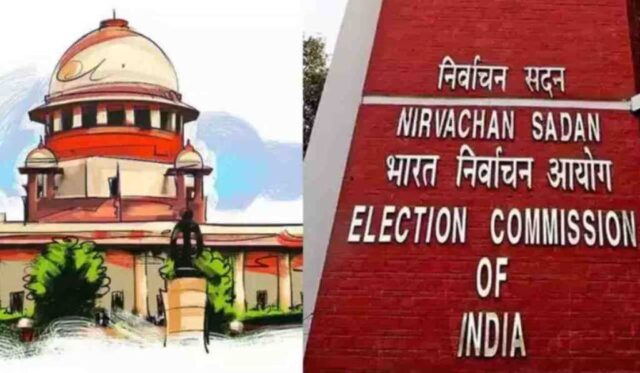Dalits who have converted to Islam and Christianity will also get SC status? Government gave these arguments in Supreme Court

Whether Dalits who have converted to Islam or Christianity should also be given Scheduled Caste status or not? Hearing is going on in the Supreme Court on this.
In the Supreme Court, a bench of Justice SK Kaul, Justice Ahsanuddin Amanullah and Justice Arvind Kumar is hearing on this.
During the hearing on Wednesday, the report of Justice Ranganath Mishra Commission was also discussed. Along with this, it was also discussed whether the Scheduled Caste people have to face social stigma despite adopting another religion or not?
The court also expressed surprise that the report of Justice Ranganath Mishra has come on the matter of reservation for Dalit Muslims and Dalit Christians, then why is the government setting up a new commission. The court said, ‘Justice Ranganath Mishra was the commission. He gave his report and you said in your wisdom that you do not believe it. Now you have formed a new commission. Why should we wait for the report of the commission.
The court said that even after converting to another religion, a person may have to face social stigma. Now the matter will be heard on July 11.
What is the whole matter?
- Many petitions have been filed in the Supreme Court. In these, there was a demand that Dalits who converted to Christianity or Muslim should also be given Scheduled Caste status and other benefits including reservation should be given.
- The Constitution (Scheduled Castes) Order 1950 has also been challenged in these petitions. This order has been called a violation of Articles 14 and 15 of the Constitution.
- This order of 1950 says that apart from Dalits of Hindu, Sikh and Buddhist religion, people of other religions cannot be given Scheduled Caste status.
What does the center have to say?
- Answering in the Supreme Court, the Central Government had said that the Constitution (Scheduled Castes) Order 1950 was not ‘unconstitutional’ and Christianity and Islam were excluded from it because these two religions do not have ‘untouchability’.
- The Central Government had also told the Supreme Court that it had not accepted the recommendations of the Justice Ranganath Mishra Commission, as there were many ‘flaws’ in it.
- The government has constituted a commission under the chairmanship of former Chief Justice KG Balakrishnan last year. This commission will examine the grant of SC status to new people who historically claimed to be a Scheduled Caste, but later converted to some other religion.
What other arguments were given by the government?
- In November last year, the Ministry of Social Justice and Empowerment filed an affidavit in the Supreme Court against reservation for Dalit Muslims and Dalit Christians.
- It said, ‘The purpose of reservation and recognition of Scheduled Castes is beyond social and economic backwardness. The identity of Scheduled Castes is centered around a specific social stigma and is limited to the communities identified in the Constitution (Scheduled Castes) Order 1950.’
- The government argued, ‘The order was based on historical data, which made it clear that people from Christian or Islamic societies have never faced such backwardness or oppression.’
- The Center had said, in fact, Scheduled Caste people convert to Christianity or Islam only so that they can come out of the oppressive system like untouchability.
Why didn’t Justice Mishra accept the commission’s report?
- Justice Ranganath Mishra Commission had submitted its report to the Center in 2007. In this report, Dalit Muslims and Dalit Christians were recommended to be given Scheduled Caste status.
- The government rejected these recommendations, calling them ‘flaws’. The government had said in the Supreme Court that this report was made without any field study, so it is not confirmed on the ground situation.
- The government said that while preparing this report, it was not even taken care of what effect it would have on the already listed castes.
What did the Supreme Court say?
- On Wednesday, Additional Solicitor General KM Nataraj, while replying on behalf of the Centre, said that the commission headed by Justice Balakrishna is working and data is being collected.
- On this, the Supreme Court asked that the report given by the Justice Mishra Commission was not accepted, then what happened to the data that came?
- The bench said that ‘how many more commissions will be constituted?’ On this, ASG Nataraj said that the Justice Mishra Commission had not looked into all the aspects.
- On this the court said, ‘You should see the report again. You are giving a report very general statement. The report is not so careless.
- The court said that ‘social stigma and religious stigma are different things. Many times even after converting to another religion, a person may have to face social stigma. When we are considering constitutional questions, we cannot close our eyes.






